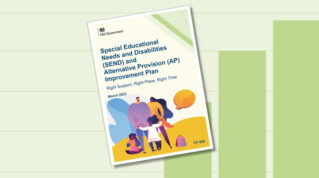Ministers plan to bring large chunks of the SEND system under “central control” with new national standards that take power from local authorities.
The green paper outlines the government’s vision to establish a “single national SEND and alternative provision system” to end “too much local discretion”.
Under the proposals, the government would introduce national SEND standards, standardised education, health and care plans (EHCPs) and national funding bands.
Rather than councils setting “notional” special educational needs budgets for their schools, the Department for Education would instead use a “single, national formula”.
Jo Hutchinson, the director for vulnerable learners at the Education Policy Institute, said central control was the only way to tackle a “postcode lottery” of support.
“The DfE wants to be able to control this partly because of the implementation failure after the 2014 reforms. It’s hard for them to make change happen if they don’t take control of some central aspects of the system.”
New national standards aim to set out “how and when” a child should be identified as requiring SEN support, with the government to “steward and regulate” the system.
Ministers hope this will “improve consistency of identification, reducing the likelihood of misidentification driven by place, setting or other factors such as race or disadvantage”.
Standardised EHCP templates and processes also aim to cut out variations between areas that at present have discretion to create their own versions. One area’s standards run to 40 pages, another to eight.
SEND changes ‘should have come eight years ago’
Karen Wespieser, a special needs expert, said academy trusts have faced a “nightmare” navigating different councils’ EHCPs. The proposals would “really start to foster a system of data collection which has been missing”, she said.

Professor Brian Lamb, whose 2009 review triggered the 2014 SEND reforms, said it was “such a mistake” that these weren’t introduced eight years ago.
The DfE also wants a national system of banding and price tariffs matched to the levels of need and types of education provision set out in the new standards.
The government will decide who pays for support and how councils set funding levels, but it plans to consult on whether some “local flexibility” is required.
But Lamb warned that getting the banding system wrong could “undermine” progress on “personalisation”.
Meanwhile the DfE’s new “regions group” – the rebranded regional schools commissioners – will be responsible for holding councils and trusts to account on delivering for youngsters with SEND.
















Your thoughts